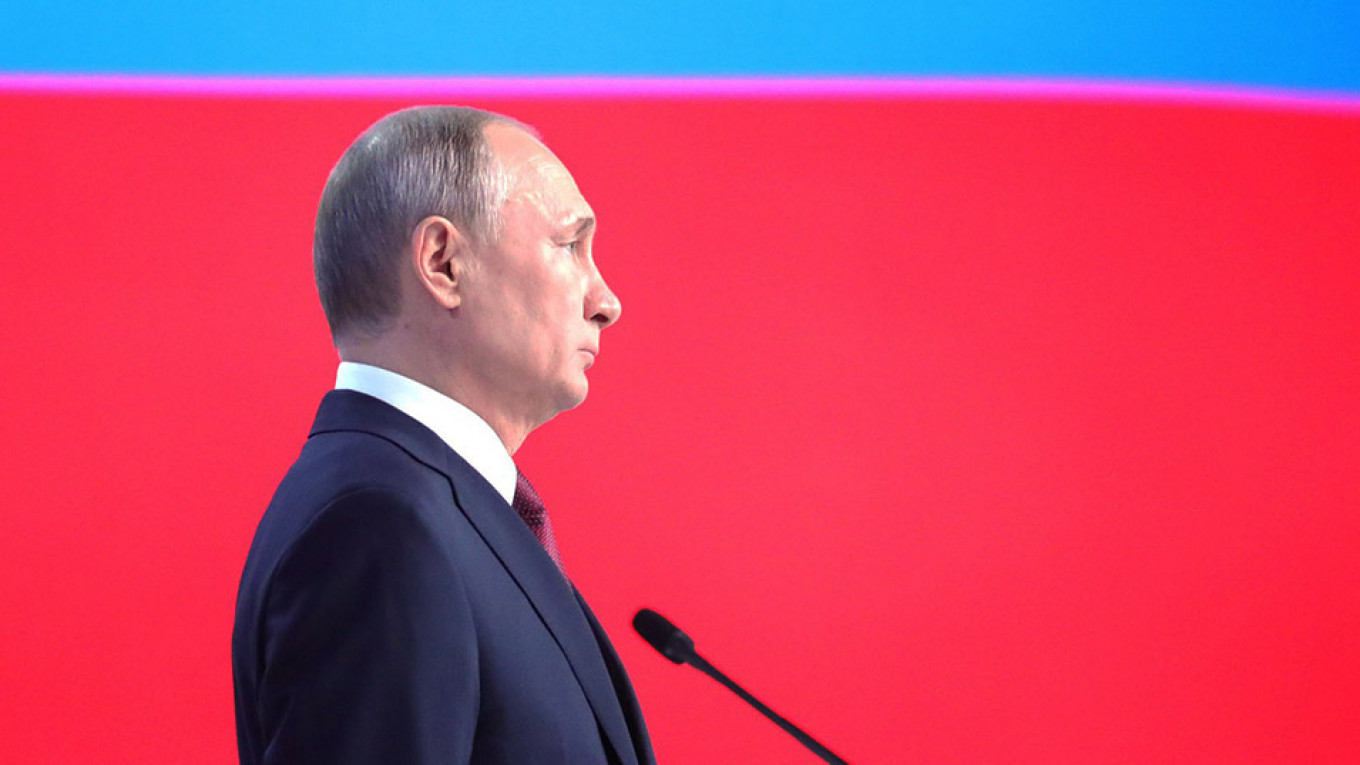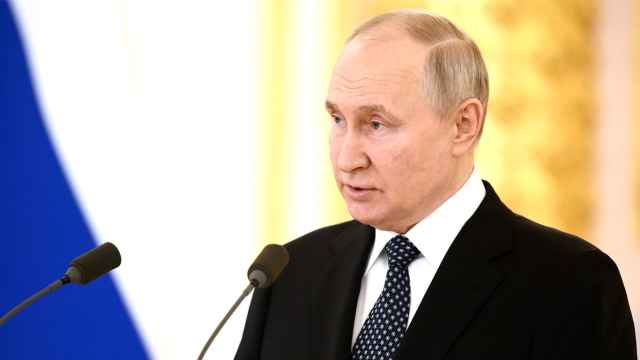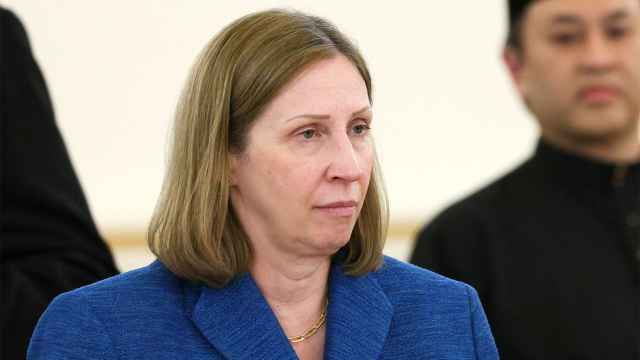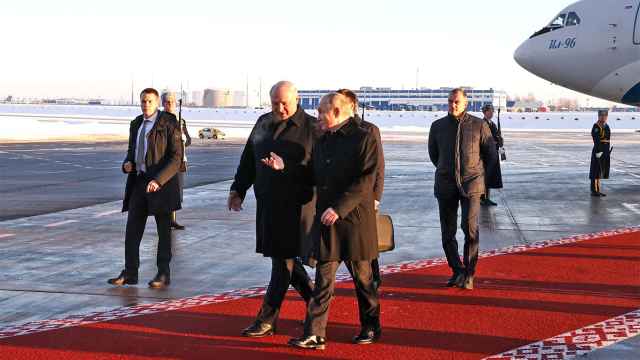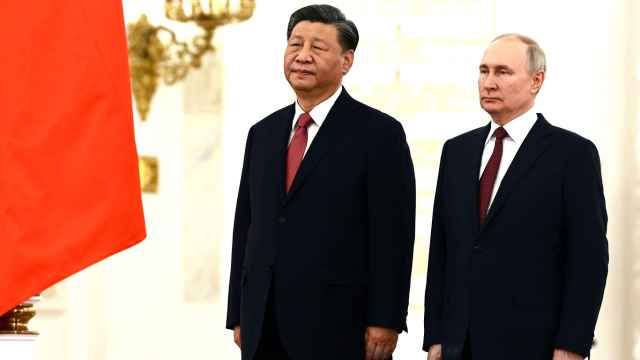Russian President Vladimir Putin knew that, in his state of the nation address, he would have to respond to the steep drop in his popularity since the middle of last year.
So the speech he delivered on Wednesday focused on improvements to welfare, education and health care as well as economic development instead of foreign policy, the area which he previously relied on to sustain his ratings.
But Putin’s promises face an obvious obstacle: the improvements he seeks are being held back by the oppressive and corrupt system of government he has built and, judging by the speech, has no intention of dismantling. In essence, he wants Russia to go down China’s path without China’s competitive advantages.
The slide in Putin’s popularity started with his decision to raise the retirement age. Polls quickly showed this was a price Russians were unwilling to pay for the president’s version of “great again,” which featured so prominently in last year’s state of the nation speech. On Wednesday, Putin signaled that, after bolstering Russia’s sovereignty and defenses, he is ready to pay more attention to citizens’ needs.
Russia’s international reserves, Putin said (and official data confirm it), are, for the first time in years (since 2010, to be precise) higher than the combined foreign debt of the government and the private sector. With the economy thus ring-fenced from external shocks, the Kremlin looks prepared to be generous.
The social program looks like the most ambitious one Putin has ever outlined. It comprises massive payouts to families with children, including more one-time payouts after a birth and mortgage subsidies; more spending on anti-poverty programs; mortgage holidays for people who have lost a job; and pension increases. He outlined programs to modernize health care and education, including an anti-cancer program worth more than $15 billion over six years and a plan to extend high-speed internet to all schools by 2021.
He promised to fix Russia’s growing waste-management problem, which has led to sporadic protests in many regions as barely regulated dumps have encroached on residential areas. Putin declared urban redevelopment a national priority and committed to a 20 percent reduction in industrial emissions over six years.
To gasps in the audience of senior officials and supporters, Putin pledged to abolish by 2021 all existing regulations currently used to put pressure on businesses – things like fire safety rules, construction codes and consumer protection programs. He proposed a leaner, more transparent regulatory regime will replace it.
Under Putin’s growth plan, Russia will have to step up government spending and investment, especially in areas like artificial intelligence and big data, and increase cooperation with China. He promised to link his pet post-Soviet integration project, the Eurasian Economic Union, to the Chinese Belt and Road initiative, just as China has long urged him to do.
In a speech like this, security policy was but an afterthought. Putin dwelt only briefly on his concern about the U.S. decision to abandon the 1987 Intermediate-Range Nuclear Forces Treaty. Work on the new weapons systems he presented in 2018 was progressing nicely, he said, and Russia will be ready to retaliate in the event of any perceived increase in the U.S. military threat. Ukraine, the biggest problem in Russia’s relations with the West, didn’t get a single mention.
From the domestic point of view, the shift from foreign adventures to social and economic issues is long overdue. Russians, however, are unlikely to be impressed with promises – especially as they come so transparently after an anti-Putin turn in the polls. Everything he promised this year could have been done earlier, and with more resources, had Putin not spent years building up his confrontation with the West. Even his boast that international reserves now exceed foreign debt only became possible thanks to deleveraging caused as much by Western sanctions as anything else.
And for all the attempts to step up cooperation with China, the country’s direct investment stock in Russia actually decreased in the first seven months of 2018 – to a puny $3.1 billion from $4.2 billion at the start of last year. Though Russia was China’s fastest-growing trade partner last year, oil and other commodities accounted for more than three quarters of the country’s exports to China; that’s not the kind of trade that fundamentally changes Russia’s economic position.
Putin appears to operate under the illusion that, with enough government spending and attention, the Russian economy can make rapid progress just as China’s did. But even that country is now facing push-back both from the U.S. and European Union, where Germany and France trying to counter the influence of its national champions.
Facing these three economic giants, Russia, smaller in both population and economic output, has opted to put on additional shackles. Its conflict with the West, for example, is an obstacle to taking advantage of Western educational institutions on the same massive scale as China, and its ability to borrow to finance investment is severely constrained.
Russia’s system of government may be too rotten to help Putin project his will. As he spoke of reducing pressure on business, the country’s top foreign private equity investor is in jail. And for all Putin’s indignation about festering garbage dumps, his billionaire friends have large interests in the waste-management business, which will only be furthered by his recent decision to put a government-run operator in charge of the disposal of all solid waste.
Despite all the social and development promises, some 15 percent of all Russian government spending, or 5 percent of gross domestic product, is on defense and security. (Germany, by comparison, spends less than 3 percent of GDP). Under the Russian government’s plans, defense and security’s share of spending will only fall to 13.5 percent (or 4.6 percent of GDP) in 2021. But health care and education outlays are also set to decline both as a share of public spending and economic output. None of this suggests a major shift in the Putin regime’s priorities from protecting itself to improving ordinary Russians’ lives.
Putin’s ability to wreak havoc both internationally and at home remains considerable. When it comes to development, however, his resources and options are constrained both by his past attempts to turn Russia into a fortress and his inability to limit his friends’ and enforcers’ appetites. In that sense, the state of the nation remains unchanged.
This opinion piece was first published by Bloomberg View.
A Message from The Moscow Times:
Dear readers,
We are facing unprecedented challenges. Russia's Prosecutor General's Office has designated The Moscow Times as an "undesirable" organization, criminalizing our work and putting our staff at risk of prosecution. This follows our earlier unjust labeling as a "foreign agent."
These actions are direct attempts to silence independent journalism in Russia. The authorities claim our work "discredits the decisions of the Russian leadership." We see things differently: we strive to provide accurate, unbiased reporting on Russia.
We, the journalists of The Moscow Times, refuse to be silenced. But to continue our work, we need your help.
Your support, no matter how small, makes a world of difference. If you can, please support us monthly starting from just $2. It's quick to set up, and every contribution makes a significant impact.
By supporting The Moscow Times, you're defending open, independent journalism in the face of repression. Thank you for standing with us.
Remind me later.



